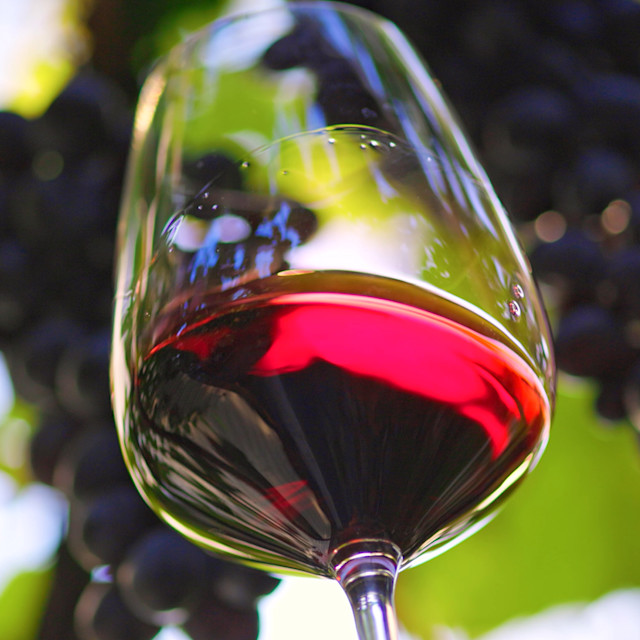An expert explores the idea that natural wine helps with hangovers.
It happened seemingly overnight: Suddenly, wine drinkers shifted their collective mantra from “Rosé all day” to “Do you have an orange vino?”
Now, you’ll find a natural wine bar — complete with Slovenian biodynamic, skin-contact varieties and low-intervention Gamays — in almost every city or, in the case of New York, San Francisco, or Los Angeles, in nearly every neighborhood.
In case you’re unfamiliar, natural wine is a sweeping category emphasizing low-intervention techniques and no artificial additives. Natural winemakers use practices that involve letting the vines, then wines, do their own thing by avoiding pesticides and commercial additives and allowing the wine to ferment “naturally.” Compare this to conventional winemaking, which often uses mass production techniques to speed up the process and any of roughly 50 additives (like artificial yeast, sulfur dioxide, and colorants) approved for use in the U.S. and Europe to control the wine’s flavor.
And there’s a lot to love about it: unexpected tasting notes, sustainable farming practices, fewer additives, and wineries that are often family- or cooperative-owned. But spend a little time in the natural wine world, and you’ll likely hear a big, beautiful promise: Natural wine doesn’t cause hangovers.
But after a night of overindulgence, does natural wine actually make for an easier, or even non-existent, hangover? Not really.
Why Natural Wine Isn’t the Best Defense Against Hangovers
Natural wine still contains alcohol.
There haven’t been any extensive studies on natural wine and its effects on the body either the morning after or over time — and the research currently available shows no promise of a hangover hack.
“Current evidence does not support claims that natural wine prevents hangovers,” says Brenna O’Malley, R.D., a registered dietitian and the founder of The Wellful in San Francisco. “Some wine experts claim that natural wines ‘feel better’ on the body, but this seems to be anecdotal and dependent on personal preferences.”
In reality: “You can definitely feel the negative impacts of drinking, or a hangover, from natural or organic wines,” O’Malley adds.
It’s true that many natural wines tend to have lower A.B.V.s than conventional wines, but there are still bottles that will surprise you. Not to mention, drinking two glasses of 10 percent compared to 14 percent A.B.V. wine will undoubtedly affect how you feel the morning after.
“It’s important to note that natural wines have varying levels of A.B.V., so make sure to check the bottle before buying,” says O’Malley.
Natural wine does contain lower levels of potentially harmful sulfites, but there are caveats.
Here’s another myth to get out of the way: All wine, even natural wine, contains sulfites. But natural wines often contain less — usually fewer than 100 parts per million compared to conventional wine, which allows up to 350 parts per million. If you’ve heard that a lighter (or non-existent) hangover from natural wine is due to fewer sulfites, there’s some truth to that, but only if you’re sensitive to them.
“Natural wines can contain fewer sulfites — sulfites preserve and prevent the wine from oxidizing too quickly — which can change the taste of the wine,” says O’Malley. “Some people are allergic to sulfites, but otherwise the permitted levels of sulfites in food and drinks is not shown to have a significant harmful effect on humans.”
Only about one percent of people are sulfite hypersensitive, according to the U.S. Food and Drug Administration’s estimates. Sensitivities do shift over time, and can develop well into your 40s and 50s, according to University of Florida researchers, so if you notice you have respiratory issues or feel more dehydrated when you drink conventional wine, you could fall into the “sulfite sensitive” category.
Eating and hydrating still matter, whether you’re drinking natural wine or not.
“If you choose to drink, drink responsibly, stay hydrated, and eat enough before and after drinking,” says O’Malley. “There is a common mentality to ‘restrict’ or ‘save up’ calories for a night of drinking or a dinner out. This is not only dangerous but sets you up for binging and feeling out of control around food and alcohol later in the night.”
As for whether there’s a “better” or “healthier” wine to drink than others, O’Malley suggests you pick the drink you enjoy the most in moderation — whatever that might be.
“I’m cautious when we use terminology like ‘better for you’ around alcohol; we have plenty of research to show the negative impacts of alcohol on health and the body,” says O’Malley. “The amount of sugar in wine can vary slightly based on dryness and sweetness, but if you are looking to have a drink — similar to when you’re thinking about what to eat — choosing what you like instead of which might have marginally less sugar can make the experience more enjoyable.”
So go for the glass of Georgian orange if you want to — or order a Negroni. Ultimately, the best way to avoid a hangover is to drink less, hydrate more, and make it an early night.
